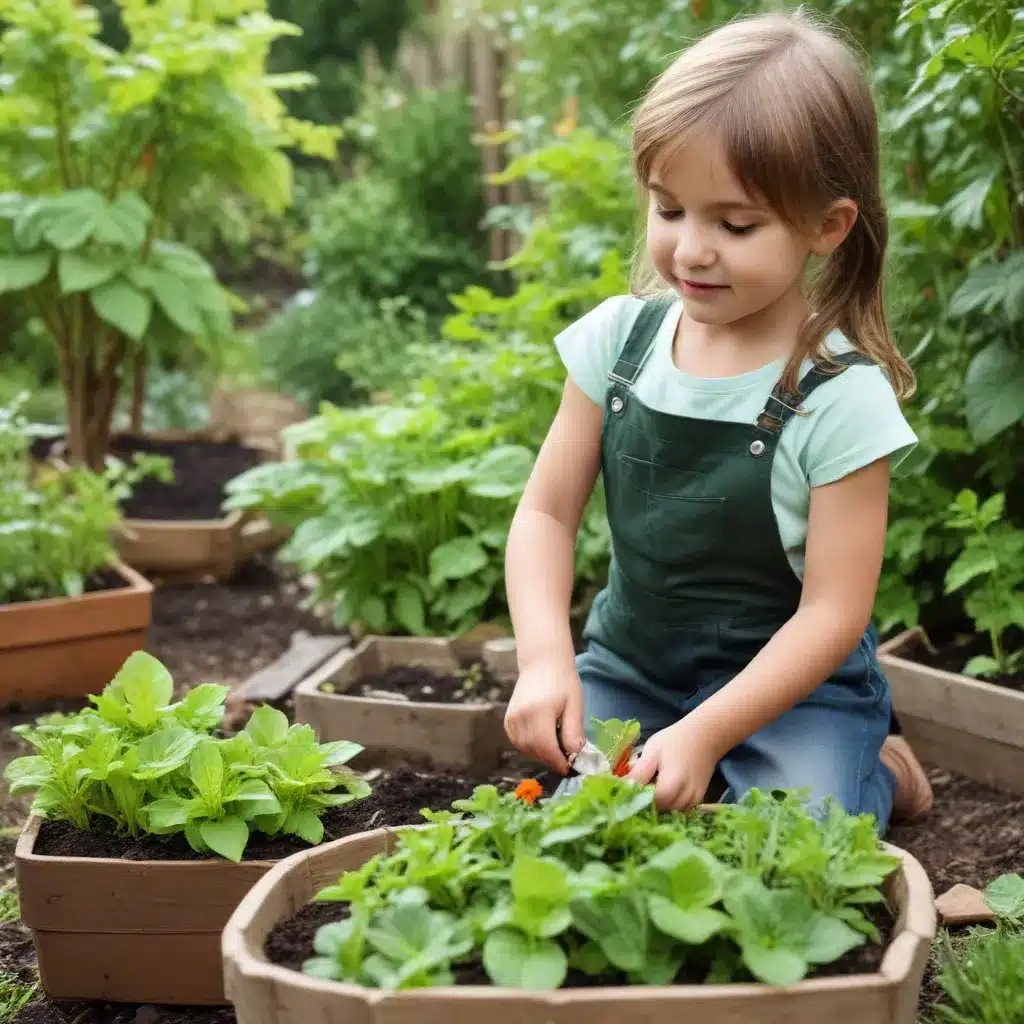
Nurturing Young Green Thumbs: Gardening Lessons and Activities for Kids
Gardening is not just about growing plants and harvesting fresh produce – it’s a powerful tool for nurturing young minds and cultivating a lifelong appreciation for the natural world. At Crooked Pines Farm, we believe that introducing children to the joys of gardening can spark their curiosity, teach valuable life skills, and foster a deep connection with the environment.
Gardening Basics for Kids
Before diving into the fun activities, it’s essential to lay the groundwork for successful gardening with kids. Understanding plant life cycles, preparing the soil and seeds, and familiarizing them with essential gardening tools will set the stage for an enriching experience.
Understanding Plant Life Cycles: Begin by introducing your young gardeners to the basic stages of plant growth – germination, seedling development, flowering, and fruit/vegetable production. Use visuals, such as labeled diagrams or time-lapse videos, to help them visualize the transformation. Encourage them to observe the changes in their own plants over time, fostering a deeper appreciation for the natural process.
Soil and Seed Preparation: Get your little ones involved in the soil preparation process. Teach them about the importance of nutrient-rich soil, how to amend it with compost or other organic matter, and the role of soil texture in plant health. Allow them to help mix the soil or fill their own planting containers. When it comes to seeds, let them explore the wide variety of options, from heirloom tomatoes to vibrant zinnias, and guide them in making selections that match their interests and the local growing conditions.
Essential Gardening Tools: Introduce your young gardeners to the basic tools of the trade, such as trowels, watering cans, and pruners. Demonstrate proper usage and help them understand the purpose of each tool. Encourage them to personalize their tools by decorating them with paint, stickers, or other creative touches.
Engaging Hands-On Activities
The true magic happens when you engage your young gardeners in fun, hands-on activities that bring the gardening experience to life. From seed planting to sensory exploration, these activities will keep them engaged and excited about their green-thumbed journey.
Seed Planting and Monitoring: Let your kids get their hands dirty by planting seeds in biodegradable pots, milk cartons, or seed trays. Guide them through the process of sowing the seeds, watering them, and observing their progress. Encourage them to keep a garden journal to record their observations, measure plant growth, and document the journey from seed to seedling.
Sensory Garden Exploration: Create a sensory garden filled with plants that engage the five senses. Incorporate fragrant herbs like lavender or rosemary, textured leaves like lamb’s ear, and brightly colored flowers. Encourage your young gardeners to touch, smell, and (when appropriate) taste the various plants, fostering a deep appreciation for the natural world.
Crafts and DIY Projects: Spark their creativity by incorporating DIY projects into your gardening activities. Help them make seed bombs or seed paper to scatter in the garden, bird feeders to attract feathered friends, or nature-inspired art using found materials. These hands-on crafts not only nurture their artistic skills but also deepen their connection to the garden.
Outdoor Classroom Environments
Transforming your garden into an outdoor classroom can provide a rich learning environment for children, seamlessly integrating gardening into their educational journey.
Establishing a Thriving Garden: Work with your young gardeners to plan and design a kid-friendly garden layout, incorporating features like raised beds, winding paths, and sensory stations. Encourage them to get creative with the placement of plants, adding companion planting strategies to promote pest control and biodiversity.
Integrating Curriculum Connections: Align your gardening activities with academic subjects, such as science, math, language arts, and social studies. Use the garden as a living laboratory to explore topics like plant biology, soil science, weather patterns, and the importance of pollinators. Encourage cross-curricular connections that enhance your students’ learning experience.
Fostering Sustainability Concepts: Gardening offers the perfect opportunity to teach children about the principles of sustainability. Incorporate lessons on water conservation, composting, and organic pest management to help them understand the impact of their actions on the environment. Encourage them to explore the role of renewable energy in the garden, such as solar-powered irrigation or wind chimes.
Nurturing Young Gardeners
As your young gardeners embark on this exciting journey, it’s crucial to foster an atmosphere of curiosity, wonder, and responsibility. By nurturing these qualities, you’ll help them develop a lifelong appreciation for the natural world and the rewards of growing their own food.
Cultivating Curiosity and Wonder: Encourage your young gardeners to ask questions, make observations, and explore the wonders of the garden. Respond to their inquiries with enthusiasm, and use their curiosity as a springboard for further learning. Organize field trips to local farms, botanical gardens, or nature centers to expand their horizons and inspire new ideas.
Developing Responsibility and Patience: Gardening teaches valuable life skills, such as responsibility and patience. Assign your young gardeners specific tasks, like watering, weeding, or harvesting, and help them understand the importance of their role in the garden’s success. Celebrate their progress and milestones, even if growth seems slow, to reinforce the value of perseverance.
Encouraging Healthy Lifestyles: Gardening is a fantastic way to promote healthy eating and active lifestyles. As your young gardeners harvest their own fresh produce, encourage them to try new recipes and share the bounty with their families. Incorporate physical activities, such as yoga or dance, into your gardening routines to keep them energized and engaged.
By immersing children in the wonders of gardening, we can nurture their green thumbs, cultivate a deeper appreciation for the natural world, and foster the next generation of environmental stewards. So, gather your young gardeners, grab your tools, and let the adventure begin!
If you’re looking for more resources to support your family’s gardening journey, be sure to visit https://www.crookedpinesfarm.com for a wealth of information, including seasonal planting guides, family-friendly recipes, and DIY projects.


